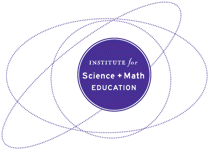Systematically Noticing and Responding to Learning Experiences through Practical Measures

- Learners will be more engaged as they see educators adjusting to their needs, caring about their challenges and experiences, and reflecting on how to improve equity for all learners.
- Educators should use these practices to see how students are experiencing a learning activity, improve engagement, address issues of inequity, develop intellectual relationships with learners, and improve their own and peers’ critical reflection on their teaching.
- School leaders should financially and practically support the development of practical measures with their educators and support their professional learning.
What is the Issue
Promoting equity in learning contexts requires that educators and teacher educators notice and respond to the experiences of all learners during a wide variety of activities—and enact humanizing and caring responses. To foster equitable learning opportunities, educators can systematically collect information about what activities learners are participating in and how they are feeling about and making sense of those experiences. This information, called practical measures of learning, can then be used by educators to inform and adjust instruction to better meet the needs of every learner. Practical measures can be used either with PK-12 students or adults engaged in professional learning.
Authors:
BY DEB L. MORRISON, PHILIP BELL & HEENA LAKHANI | JULY 2023
Reflection Questions
- What aspect of equity in instruction are you focusing on?
- Who can your thought partners be as you interpret the data?
- How will you share patterns in the data and instructional shifts with learners you serve?
Things to Consider
- Students experience learning in widely variable ways due to many different factors, including social positioning, prior experiences and knowledge, home and community relationships, and operating assumptions about their social identities, and cultural ways of learning. Schools need to design for anti-oppressive education with this in mind.
- Instead of only measuring what is being learned, assessment should also focus on how learning is experienced. Thus, the focus should be on students’ perspectives about classroom activities and tasks. Noticing and attending to learner’s experiences is a type of formative assessment. If done in an intentional and sustained way that guides improvement, this type of formative assessment can also be called practical measures.
- Practical measures do not focus on evaluative feedback, but instead provide frequent, timely information to inform instruction. Educators can use practical measures for many reasons (e.g., surface the voices of learners, document ongoing progress and challenges, help learners reflect and collaborate). Practical measures use everyday language, produce actionable information, and are tuned to specific goals.
Attending to Equity
- Use practical measures to gauge youth interest and engagement. Learning is a cultural activity; practitioners need to be intentional in designing learning opportunities that respond to the social dynamics in classroom settings and forefront equity in their practice. Students experience the world in multi-faceted ways, and their learning is tied to their experiences, interests and identities. If we do not tap into these important dimensions of learning, we lose opportunities for students to make meaningful connections with science. Focusing practical measures on a specific equity project or goal within a science learning context can help ensure inequities are disrupted and just learning opportunities are provided.
- Use practical measures to build more powerful learning communities. Practical measures can help educators gauge how students are experiencing instruction in ways that are not readily accessible across a group. Patterns noticed in practical data can help educators understand how to promote belonging in the learning community and student connections to science.
Recommended Actions You Can Take
- Read our Guide for Sensing Learning and Activity for guidance on how to focus, design, analyze, and respond to practical measures. In short…
- Define an improvement goal. Practical measures can be used to sense qualities and changes in an aspect of teaching and learning over time. As such, it is important to clearly define a goal that is to be measured, then design measures specific to that goal. Keep goals small and change them over time. For example, a teacher might want to develop classroom participation norms that are inclusive to students of color. The teacher could design confidential exit tickets that regularly ask whether students feel their voices and ideas are being heard and taken up by their peers. The teacher should distribute these exit tickets at regular intervals to sense shifts in student interactions, especially after they introduce new structures for classroom talk.
- Keep it short and quick! Practical measures should be short, so that they do not take up significant class time and can be quickly processed. Such mini-surveys or check-ins can be done on index cards as exit tickets or can be more routinized as short (i.e., less than 5 minute) online surveys. Read examples of measures to use with students if you are a teacher, with teachers if you are a teacher educator, or with implementation teams to sense progress. These can be built into Google surveys, such as this one on climate change learning.
- Be responsive and caring. Share with your learners how their responses are directly informing your shifts in instruction.
ALSO SEE STEM TEACHING TOOLS
STEM Teaching Tools content copyright 2014-22 UW Institute for Science + Math Education. All rights reserved.
This site is primarily funded by the National Science Foundation (NSF) through Award #1920249 (previously through Awards #1238253 and #1854059). Opinions expressed are not those of any funding agency.
Work is licensed under a Creative Commons Attribution-ShareAlike 4.0 Unported License. Others may adapt with attribution. Funded by the National Science Foundation (NSF). Opinions expressed are not those of any funding agency.


 Email Feedback
Email Feedback


